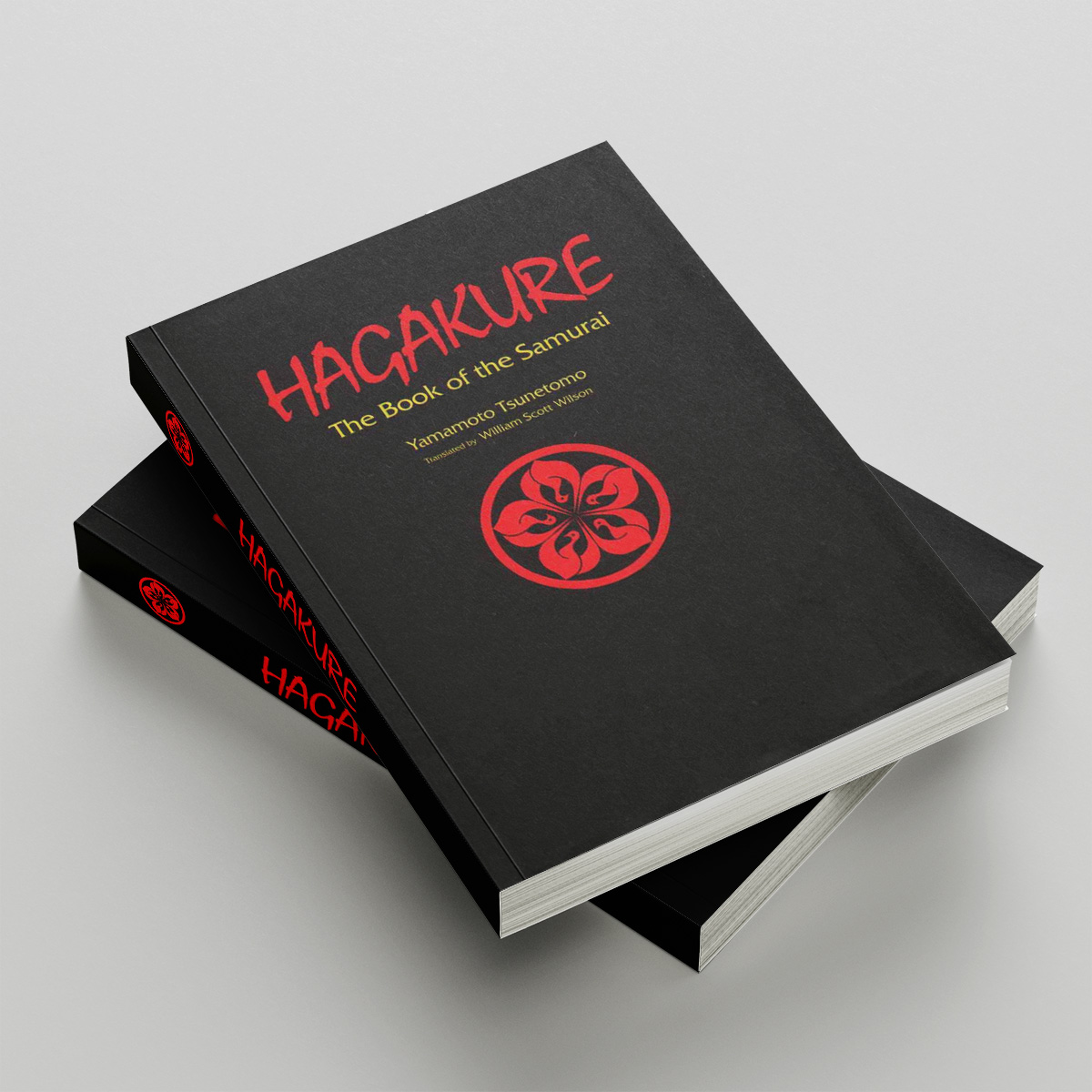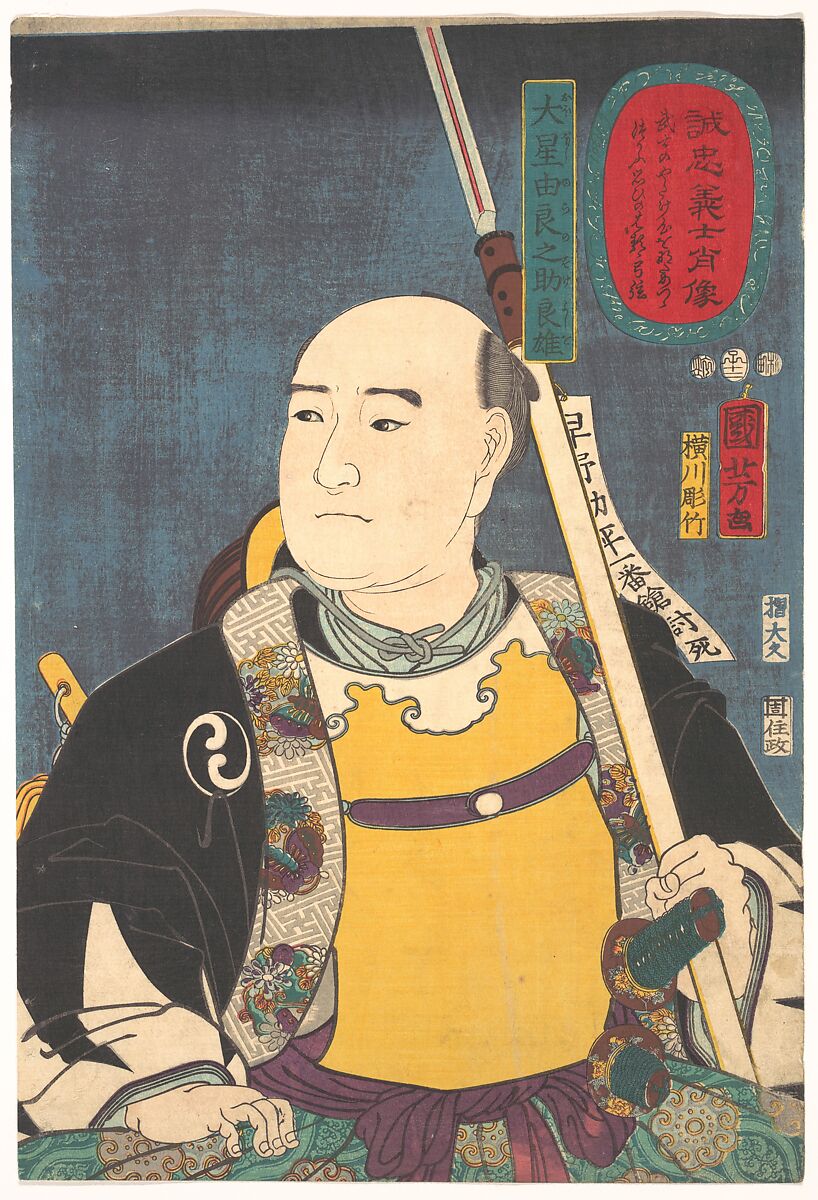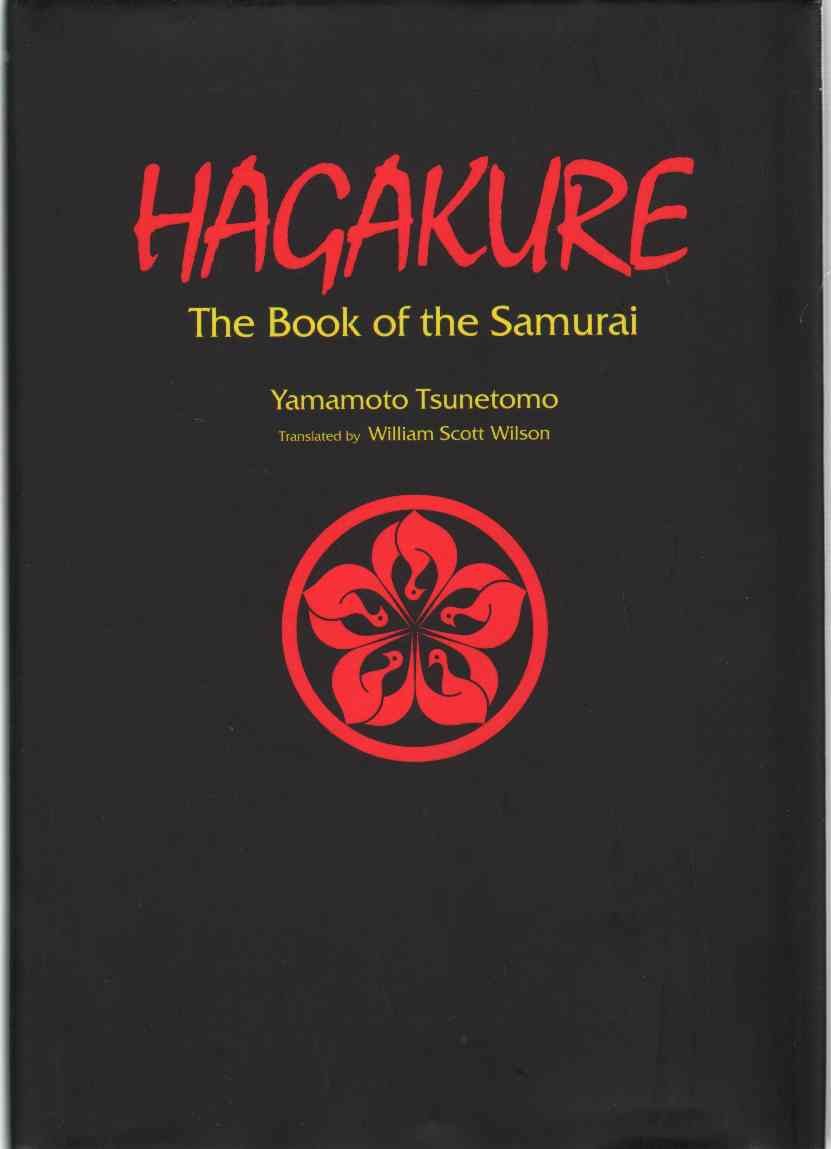
Hagakure – The book of the samurai
THE SAMURAI'S WAY
Essay on the book: Hagakure – The book of the samurai
Essay on the book: The book of the samurai.
- The philosophy of bushido portrayed in Hagakure emphasizes unswerving loyalty to the lord as the main virtue of the samurai, so that a life without this devout commitment would lack purpose and value according to the perspective of the text.
Introduction
Today we embark on a journey through the soul of the samurai warrior, in an attempt to understand what shaped their existence and drove them to give their lives for their lord without hesitation. To this end, the book Hagakure provides us with an invaluable legacy that gathers the teachings of the monk and swordsman Yamamoto Tsunetomo, a tireless entity of the wisdom of the men-at-arms who preceded him.
In its pages is vividly portrayed the complex thought of the samurai, almost with the intensity with which it beat in his own chest. Reading it, we can only imagine Tsunetomo passionately dictating to his scribe, invoking with his single word the essence of the warrior that nested within him after a life of unconditional service to his lord. For him, the meaning of existence lay in that blind devotion, in giving himself body and soul to a master for whom it was worth risking everything.
But was this absolute loyalty a value in itself, or did it also hide darker aspects? As we enter the complex ethical world proposed by Hagakure, we are faced with a crossroads: to celebrate this commitment to the lord as the pinnacle of samurai virtue, or to question whether a life stripped of self-will could lead to fanaticism? These questions lie behind the pages of a book that, beyond its historical value, continues to question us about the limits between devotion and the abdication of the individual.
Thus, this essay aims to analyze how throughout its stories and advice, Hagakure exalts that unswerving loyalty to the master as the core of the warrior’s existence. However, we will also explore whether such a vision posed shadows, by stripping the man of all agency and individuality. For although such loyalty was the essence of the warrior soul according to the play, it is worth asking whether it did not ultimately blur the individual in exchange for a greater cause.
Tsunetomo’s teachings, beyond their value in understanding the historical context in which he was born, continue to resonate and disturb contemporary society. For in them beats the eternal dichotomy between service to a mission that transcends the self, and the need for the self to forge its own destiny. Was this absolute loyalty an inspiring ideal, or did it conceal the seed of a blind and potentially dangerous surrender? These are some of the questions we will explore through the leisurely analysis of this essay.
Although Hagakure was written more than three centuries ago in feudal Japan, its legacy lives on in us. For in the clash between the duty of surrender to the lord and the affirmation of the individual beats an eternal questioning of the limits between servitude and personal fulfillment. Were the samurai, so devoted to their master, simply pawns of a greater will or men of firm convictions? These questions continue to awaken the analysis of anyone who delves into the teachings of Tsunetomo, even centuries later.
LOYALTY IN THE FACE OF DEATH
In Hagakure, loyalty in the face of death is considered the samurai’s greatest virtue. Numerous stories evoke this boundless dedication to the lord, even to the point of giving one’s life for him without hesitation.
One example is the story of Araki Kyūzaemon fiercely defending his master to the last breath. When his master was attacked, Kyūzaemon reacted with admirable fortitude of spirit. Although mortally wounded, he managed to defend his master and avenge his honor through his last breath. This attitude shows the warrior’s ideal of not allowing his lord to succumb, preferring to fall with him rather than survive his death.
Another case is the advice to be prepared to die on the battlefield. It is presumed that the meaning of the samurai’s life lies in giving his life for his lord if necessary. A warrior who is unwilling to make this ultimate sacrifice would be worthless, for he would put himself before his duty to protect his lord. His life would gain purpose by serving him until his last breath.
These examples illustrate a heroic view of loyalty, where life is surrendered without remorse when the master’s honor or survival is at stake. However, such a commitment could be questioned as a sort of “mental kamikaze” that strips the individual of will. Yet, for Hagakure thought this degree of surrender was the essence of samurai virtue.
Tsunetomo even seems to have assumed this ideal himself. He recounts one of his recurring dreams where he dies in battle or committing seppuku, suggesting that his own spirit was forged in that determination to face death bravely when called upon by his duty as a warrior. For him, only those who accepted such a commitment without hesitation were qualified to call themselves samurai.
In this way, the text portrays loyalty to the lord taken to its ultimate consequences, as a virtue that demanded warriors to be willing to make the supreme sacrifice for their master without regard. An ideal that reveals the most complex essence of the samurai’s soul according to Hagakure.
LOYALTY ABOVE ALL
Loyalty above all was posed as the supreme value of the warrior according to Hagakure. In the book, several anecdotes show how samurai put this duty before anything else.
One example is the story of Chiba Dōzan, a warrior determined never to leave his master’s side. Once, during an important meeting at his master’s castle, Dōzan was ill. However, he preferred to attend the event despite his condition, even crawling on his knees in order to remain close to his master. This degree of unwavering dedication reveals how loyalty came before any limitation for the warrior.
Another anecdote is that of Nakano Rokusaburō, who refused to surrender in combat despite having received serious wounds. Even with his life hanging by a thread, his commitment to his lord compelled him to fight to his last strength rather than succumb or flee. This example captures that uncompromising will to never give up in the face of death when it comes to serving his master.
On the other hand, such a degree of devotion could be questioned. By stripping the individual of self-will in pursuit of blind obedience, this ideal came with problematic visions. After exalting the surrender of the self, did it not end up blurring human nature for the sake of a cause beyond the individual? This raises the question of whether such a commitment was in fact compatible with full self-realization.
At the same time, examples such as Chiba Dōzan suggest a militarism taken to the extreme, where one’s own health or well-being loses all value in the face of service to the lord. While extolling the virtue of the warrior, such a vision also contained the germ of a problematic self-sacrifice. Loyalty, when taken to its ultimate consequences, would it not end up devouring the human essence in favor of an external mission?
LIVING FOR THE LORD
To live in function of the lord was the most exalted ideal in Hagakure. For the warrior, his existence took on purpose in his devotion to his master.
A clear example was that of Nabeshima Naiki, a faithful servant who decided to take his own life after his master lost his position. For him, it made no sense to continue living if he no longer had a master to serve. His existence was defined exclusively around his master, so when his master died, there was no reason left for his own life.
Another case was that of Matsuda Yohei, who engaged in a duel with a former ally only because he had been offended. Although mortally wounded, his determination in combat stemmed from a desire to honor his master to his last breath. Even on his deathbed, he thought only of not dishonoring his master with a cowardly performance.
However, for some this raised questions. By fully identifying with his master, did the warrior not end up blurring his own personality? By blindly putting his master’s honor first, would he not end up sacrificing even his own life and will? This total surrender could be questioned as an abnegation of individual dignity in favor of an external cause.
Even so, Tsunetomo would have argued that this was the way to achieve full realization as a human being. By concentrating one’s existence on a single higher purpose, the warrior achieved his purpose of service. Sacrificing the self for the sake of the other was the way to attain fulfillment through selfless dedication. Only in this way did life take on, for him, its true meaning.
A QUESTIONABLE VISION
The ideal of living and dying for the Lord is a devotion worthy of admiration. However, it also raises questions about its possible distortions. If the warrior is totally diluted in his master, would he not lose his own human essence in pursuit of blind obedience?
At times, the loyalty demanded seemed unconscionable. A clear case in point was Suzuki Rokubei, who preferred to murder a nurse rather than expose his own death, putting his master’s honor before his own life. This unwavering dedication is questionable if it overrides individual will.
Likewise, inciting young men to violence to curry favor with the lord, as Tsunetomo recommended, also has problematic readings. While forging warrior bravery, it can also be interpreted as a troubling escalation toward warlike unreason. Pushing the youngest to engage in duels at an early age, even when their maturity did not qualify them to do so, seems unconscionable.
Certain passages also suggest a militaristic vision taken to its ultimate consequences. The idea that life has value only on the battlefield, putting honor before one’s own physical integrity, poses the risk of glorifying a worrying abnegation in the face of death. If life has value only in terms of the lord, is it not a denial of one’s right to survival?
However, it is also fair to assess how deeply rooted these ideals were in their time. Samurai society demanded a degree of dedication that, while questionable from our modern coordinates, was consistent with their environment. Rather than judging anachronistically, it is important to understand the ethics that engendered them in their own context.

CONCLUSION
Throughout this essay we have reviewed the ethics of the samurai warrior according to the teachings of Hagakure. Although it raises questions from our current perspective, its message continues to resonate years later for its exaltation of honor and duty. The ideals of loyalty, dedication and sacrifice remain a challenge to our times.
This book reminds us that personal success is worth little if it is not placed at the service of others. Its demand to put higher causes before our own self invites us to reflect on what legacy we want to leave to future generations. It urges us to transcend individualism and give meaning to our existence through others.
Although questionable in its extremes, we understand its message better by contextualizing it in the era that engendered it. Far from judging with anachronism, we should admire the bravery of those who knew how to face death for what they believed to be just. Their courage should inspire us to firmly defend our ideals in the face of adversity.
Undoubtedly, this legacy also poses learning opportunities. We must avoid his warmongering vision and glorify reason over weapons. Nevertheless, their memory drives us to surpass ourselves every day in search of the excellence that honors our ancestors. Only in this way will the sacrifice of those who preceded us have been worthwhile.
Ultimately, Hagakure gives us timeless values to reflect on beyond its negative extremes. Its exhortation to give everything for a greater cause summons us to transcend as human beings. It is the challenge to honor the memory of those who pushed their dedication and courage to the limit.





0 comments